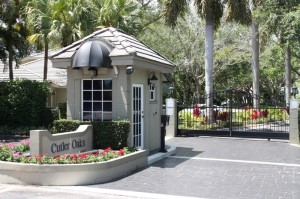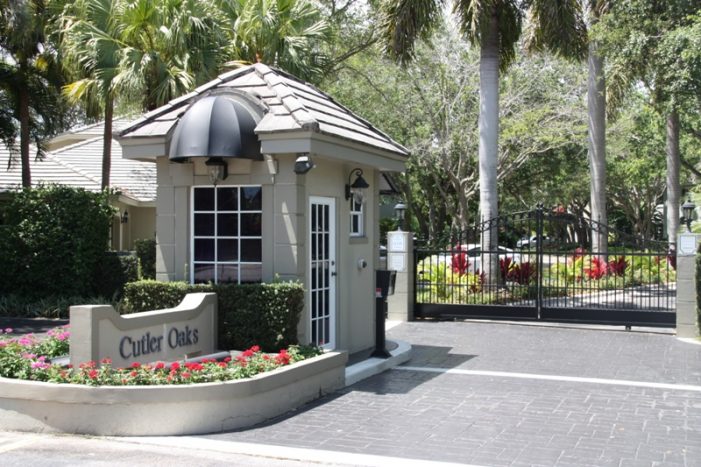With zero discussion, and more than two months before the first budget hearing — and the loud boasts about not raising taxes begin — Miami-Dade Commissioners gave preliminary  approval Tuesday to a tax increase for more than 116,000 property owners.
approval Tuesday to a tax increase for more than 116,000 property owners.
Yes, a tax increase. In June.
The administration has found that these property owners, in 234 special taxing districts for street lights, security guards and grounds maintenance and/or capital improvements, have been paying too little taxes since as early as 2011. An adjusted increase is necessary to continue service to 196 of the street lighting districts that would go dark without it, according to a memo from Miami-Dade Mayor Carlos Gimenez. The others are 33 of the 44 security guard districts a nd 5 multipurpose districts out of 117.
nd 5 multipurpose districts out of 117.
That’s so far.
The memo states that an ongoing internal audit and “subsequent management review has revealed issues with management and accounting practices that are currently being addressed.”
Translation: These districts — which are voted upon by the property owners who want to tax themselves for lighting, security or neighborhood improvements — have not had needed adjustments made throughout the years.
“The division has been reorganized, the accounting and budget methodology has been reviewed
and enhanced for consistency with acceptable county and accounting standards, and staff is working with the county attorney’s office to ensure compliance with state laws,” the mayor’s memo goes on.
Translation: The guy in charge, Don Tock, took “medical leave” that he is not coming back from and the division was put  in Deputy Mayor Alina Hudak‘s hands. She has not returned multiple efforts to reach her about this.
in Deputy Mayor Alina Hudak‘s hands. She has not returned multiple efforts to reach her about this.
But I would ask her how these below standard accounting practices seemed to work fine until 2011, which is coincidentally when Gimenez took office. Ladra knows that some of these districts have existed for decades. How could we suddenly not be budgeting them correctly? And how can methodology be responsible? Was there not someone in the budget office or one of the five deputy mayors in charge of overseeing this?
The memo makes a point of stating that the services have not been affected. “It must be noted that special taxing district services have been continually provided without interruption of service during this review process.”
Translation: Those services have been paid out of some other shell-game account, like the general fund (read: you and me). We’re talking about millions of dollars.
There are 104,011 properties in the 196 lighting districts that would see their taxes raised anywhere from $50 a year to more than $1,000 — the maximum of which would bring the county about $5.8 million in additional revenue this coming year if commissioners give it final approval June 30. The security guard taxing district adjustments would bring an additional $2.7 million if maxed out. And that does not count the revenue coming (probably another million) from 800 properties that will have to pay more than $1,000 in additional taxes.
raised anywhere from $50 a year to more than $1,000 — the maximum of which would bring the county about $5.8 million in additional revenue this coming year if commissioners give it final approval June 30. The security guard taxing district adjustments would bring an additional $2.7 million if maxed out. And that does not count the revenue coming (probably another million) from 800 properties that will have to pay more than $1,000 in additional taxes.
In some cases, the spike in the revenue is not just for increased electrical costs but also to “correct prior year deficits.”
The increases were approved 10-1 with only Commissioner Juan “Zorro” Zapata voting no. He could not be reached for comment afterwards to ask him why, but Ladra bets it has something to do with the questions raised here. And the main question that we ask about everything: Who knew what when?
How long did this go on under the culture of “no new taxes” and the noses of There might not be an actual directive from the administration, but if the methodology was bad, it sure looked like people looked the other way.
But Ladra would like to see Gimenez now say he hasn’t raised taxes.

